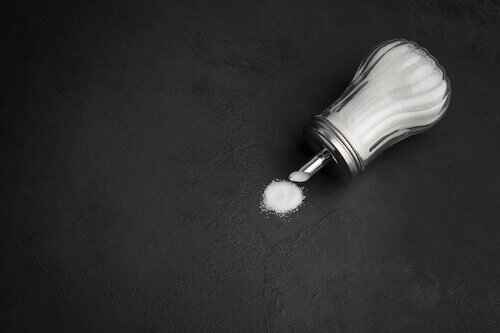
Mar 08 , 2024
If you have ever been informed by your doctor that you have protein in your urine, it's crucial to understand what this means and how you can address it.
Protein in urine, also known as proteinuria, can be a sign of an underlying health issue that needs attention.
In this article, we'll explore what proteinuria is, its causes, symptoms, diagnosis, treatment options, preventive measures, and more to help you manage and stop protein in urine effectively.

Proteinuria, or the presence of protein in urine, occurs when excess protein leaks into the urine from the bloodstream.
This condition can indicate potential kidney damage or dysfunction, as the kidneys typically filter waste products and excess substances from the blood, including protein.
Common causes of proteinuria include kidney disease, diabetes, high blood pressure, and certain medications.
Detecting protein in urine through urinalysis or protein-to-creatinine ratio tests is crucial for diagnosing underlying health issues.
Monitoring and managing proteinuria are essential to prevent further kidney damage and complications.
According to a study published in the Journal of the American Medical Association (JAMA), proteinuria is associated with an increased risk of cardiovascular disease and mortality.
Kidney Damage: Damage to the kidneys can lead to leakage of protein into the urine. This damage can be caused by various conditions such as diabetes, high blood pressure (hypertension), glomerulonephritis, and kidney infections.
Diabetes: High levels of blood sugar in diabetes can damage the small blood vessels in the kidneys, leading to protein leakage into the urine. This condition is known as diabetic nephropathy.
Hypertension: High blood pressure can damage the kidneys over time, causing protein to leak into the urine. Hypertension can affect the small blood vessels in the kidneys, impairing their ability to filter waste products properly.
Infections: Infections of the urinary tract or kidneys can cause inflammation and damage to the kidney tissue, leading to proteinuria.
Autoimmune Diseases: Conditions such as lupus erythematosus and IgA nephropathy can cause inflammation in the kidneys, resulting in protein leakage into the urine.
Amyloidosis: This is a condition characterized by the buildup of abnormal proteins in various organs, including the kidneys. Amyloidosis can lead to kidney damage and proteinuria.
Medications: Certain medications, such as nonsteroidal anti-inflammatory drugs (NSAIDs), antibiotics, and some chemotherapy drugs, can cause kidney damage and result in proteinuria as a side effect.
Genetic Factors: Some genetic conditions, such as Alport syndrome and Fabry disease, can cause abnormalities in the structure and function of the kidneys, leading to proteinuria.
Other Factors: Other factors that can contribute to proteinuria include excessive protein intake, dehydration, strenuous exercise, and certain medical procedures.

A protein-free diet can aid in remove protein from urine.
By restricting protein intake, the kidneys are relieved of excessive filtration, reducing the amount of protein excreted in urine.
Studies, such as the one conducted by Cirami et al. (2017) published in the Journal of Renal Nutrition, have shown that protein restriction can effectively decrease proteinuria levels, thereby potentially slowing the progression of kidney disease.

Limiting salt intake can help control proteinuria by reducing kidney damage and decreasing blood pressure.
Excess salt can strain the kidneys, leading to protein leakage into the urine.
According to a study published in the Journal of the American Society of Nephrology, individuals with reduced salt intake experienced lower levels of protein in their urine, indicating better kidney function and reduced risk of kidney disease.

Eating more fiber-rich foods can help you to lower protein in urine, a common indicator of kidney health.
Studies, such as one published in the "American Journal of Kidney Diseases," have shown that a high-fiber diet reduces proteinuria, the presence of excess protein in urine.
Fiber helps regulate blood sugar levels and decreases inflammation, thereby protecting kidney function and reducing the risk of protein leakage into urine.

Regular exercise can assist in controlling proteinuria, or the presence of protein in urine, by improving overall kidney function and reducing blood pressure.
According to a study published in the American Journal of Kidney Diseases, individuals who engaged in moderate exercise showed a significant decrease in proteinuria levels compared to sedentary counterparts.
Exercise promotes better blood circulation and helps maintain healthy kidney function, thus reducing protein leakage into the urine.

Quitting smoking can significantly reduce protein in urine, a marker for kidney damage.
Research published in the American Journal of Kidney Diseases found that smokers had higher levels of proteinuria compared to non-smokers.
Smoking damages blood vessels, including those in the kidneys, leading to protein leakage.
By quitting smoking, individuals can protect their kidney function and lower the risk of proteinuria-related complications.

Avoiding certain medications can help to cure protein in urine by reducing stress on the kidneys.
Medications like nonsteroidal anti-inflammatory drugs (NSAIDs) and certain antibiotics can exacerbate kidney damage, leading to increased proteinuria.
A study published in the Journal of the American Society of Nephrology found that avoiding NSAIDs and angiotensin-converting enzyme inhibitors (ACEIs) helped reduce proteinuria in patients with kidney disease.
Therefore, careful medication management is crucial in managing proteinuria and preserving kidney function.

Dietary changes play a crucial role in managing proteinuria, the presence of protein in urine.
Reducing protein intake, especially from animal sources, can alleviate strain on the kidneys and decrease protein excretion.
A study published in the Journal of the American Society of Nephrology found that a low-protein diet effectively reduced proteinuria in patients with kidney disease.
Incorporating more plant-based proteins and maintaining a balanced diet can further support kidney health and reduce protein leakage in urine.

Weight management plays a crucial role in controlling proteinuria, the presence of excess protein in urine.
Research by the National Kidney Foundation indicates that obesity can exacerbate kidney damage, leading to increased protein leakage.
Maintaining a healthy weight through balanced nutrition and regular exercise can help reduce strain on the kidneys, thus potentially lowering proteinuria levels.
Effective weight management strategies contribute to overall kidney health and minimize the risk of complications associated with protein in urine.

Controlling high blood pressure is crucial for managing protein in urine, a condition known as proteinuria.
Research conducted by the National Institute of Diabetes and Digestive and Kidney Diseases (NIDDK) has shown that hypertension damages the kidneys' filtering units, leading to protein leakage into the urine.
By managing blood pressure through lifestyle changes and medication, individuals can reduce the strain on their kidneys, thus decreasing proteinuria and preserving kidney function.

Controlling diabetes plays a crucial role in managing protein in urine.
Research published in the Journal of the American Society of Nephrology highlights that tight blood sugar control significantly reduces the risk of developing proteinuria, a condition where abnormal amounts of protein are found in the urine.
Proper management of diabetes through medication, diet, and lifestyle changes can help prevent kidney damage and decrease protein leakage into the urine.

Yoga's holistic approach to health treat protein in urine.
Research by Chaudhary et al. (2019) suggests that yoga's stress-reducing effects and promotion of kidney function may mitigate proteinuria.
Asanas (postures), pranayama (breathing techniques), and meditation can enhance renal function, potentially reducing protein leakage.
Incorporating yoga into a comprehensive treatment plan may offer benefits in managing proteinuria and promoting overall renal health.

Drinking sufficient water can help control protein in urine by diluting its concentration.
Adequate hydration promotes healthy kidney function, reducing the risk of proteinuria, the presence of abnormal levels of protein in the urine.
According to a study published in the American Journal of Kidney Diseases, increased water intake can significantly decrease proteinuria in individuals with kidney disease, emphasizing the crucial role of hydration in managing urinary protein levels.
Consult your doctor if you experience persistent foamy urine, swelling, or other symptoms associated with proteinuria. Early detection and ayurvedic treatment can help prevent complications.
Protein in urine, or proteinuria, can be a sign of underlying kidney or health issues.
Understanding its causes, symptoms, and treatment options is essential for effectively managing and stopping proteinuria.
By making lifestyle changes, adhering to treatment plans, and seeking medical advice when needed, individuals can take control of their kidney health and reduce the risk of complications associated with proteinuria.
